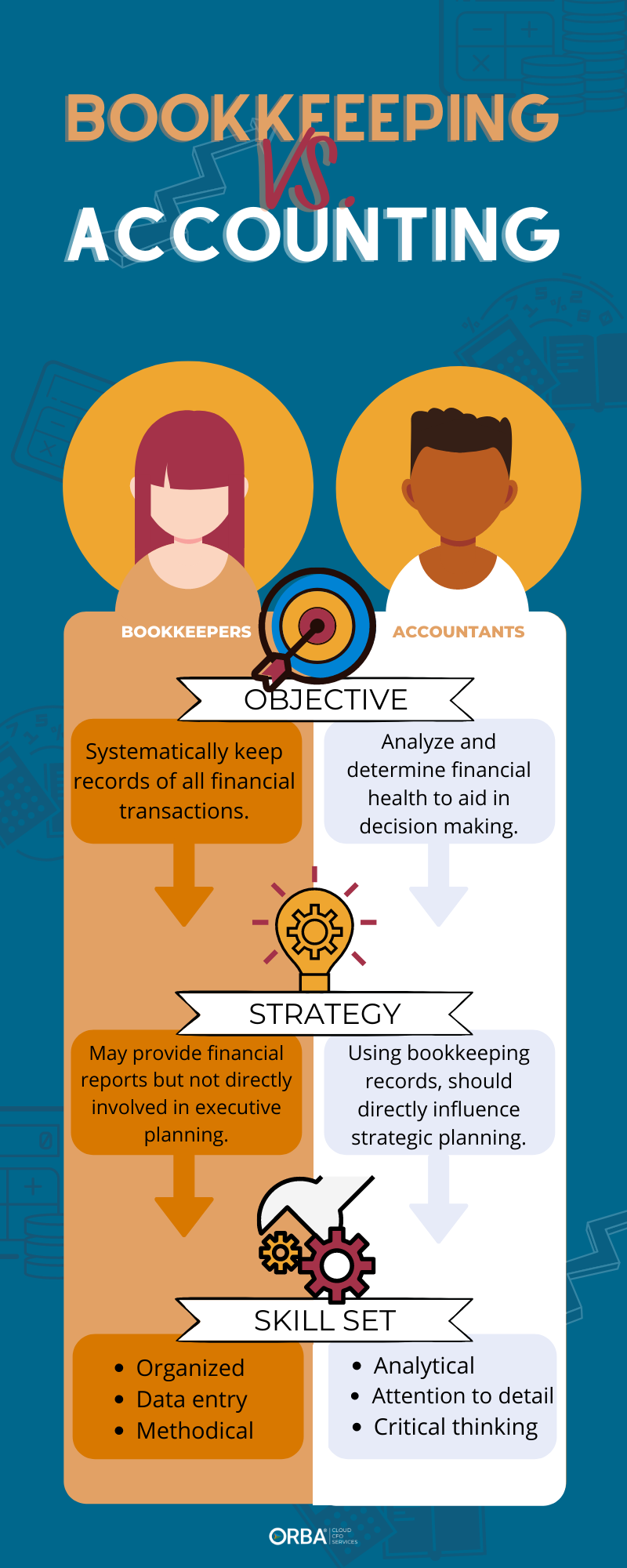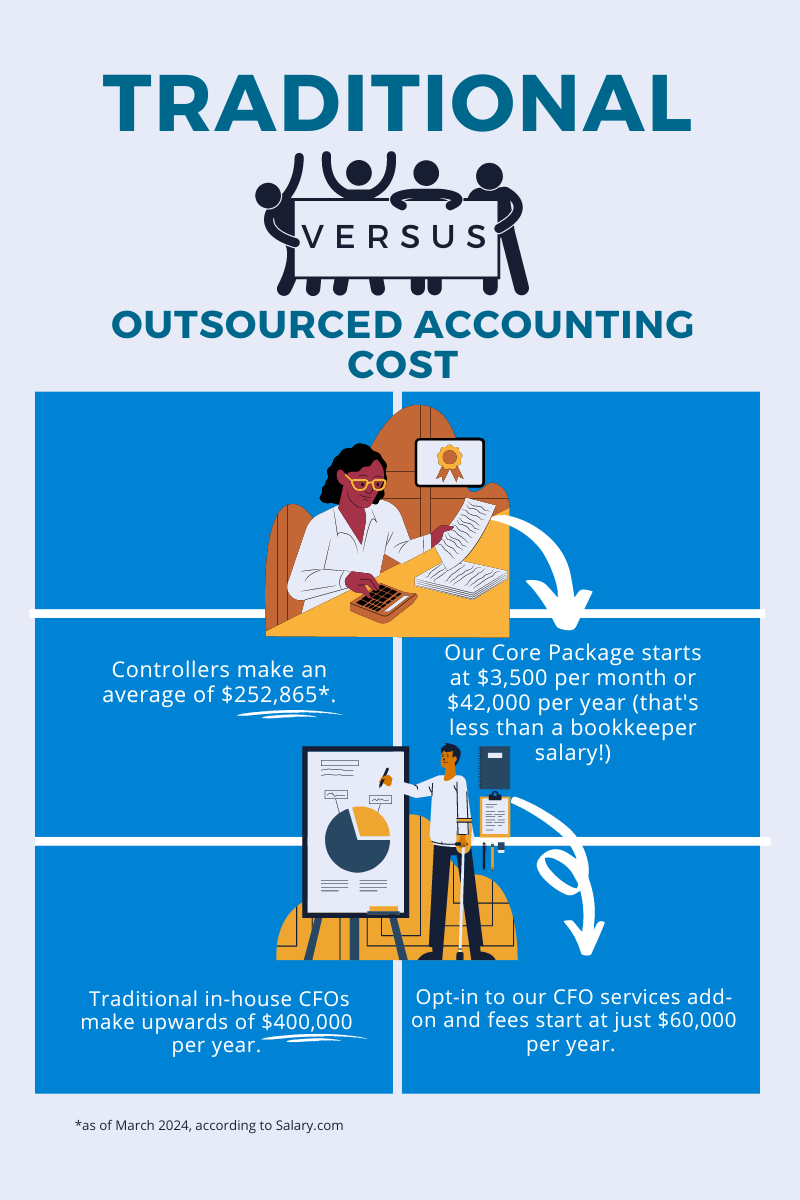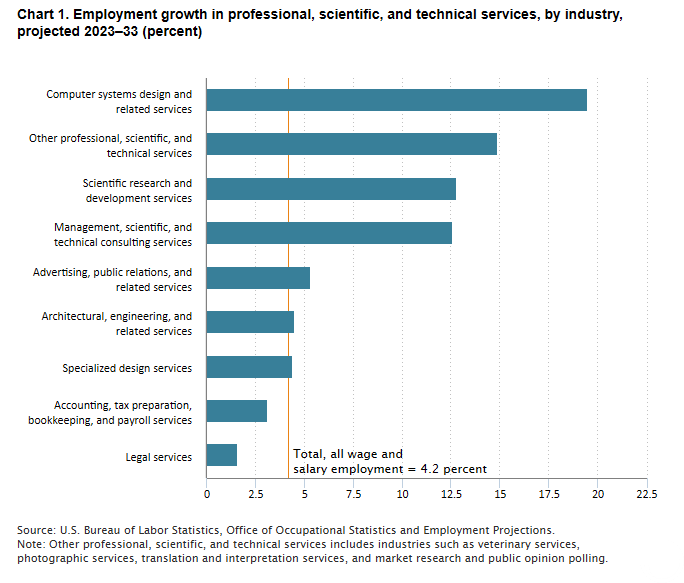While it may be tempting to manage your own books at the start to save money, bookkeeping can quickly fall behind when the business starts to scale or focus gets pulled away by other growing priorities. Once your business reaches a certain size, it’s probably time to consider hiring an outsourced bookkeeper. Having accurate and reliable financials is the best way to make informed decisions for your business.
To really understand how outsourced bookkeeping services can save you time, we’ll take a closer look at what a bookkeeper is responsible for.
What does an outsourced bookkeeper do?
An outsourced bookkeeper is responsible for recording, reconciling and reporting the transactions and financial operations of a business or nonprofit.
A bookkeeper’s tasks can include:
- Entering expenses and income into accounting software;
- Reconciling bank and credit card accounts;
- Paying vendors;
- Maintaining records; and
- Flagging discrepancies.
3 signs to hire an outsourced bookkeeper
While some entrepreneurs might be able to manage those tasks on their own, there are many reasons to hire an outsourced bookkeeper instead. Here are 3 signs to look for:
1). Bookkeeping takes up too much of your time.
Instead of spending your valuable time:
- Doing data entry
- Ensuring your accounts receivable is up to date
- Paying bills
- Reconciling accounts,
…you could be spending your time focused on business development, marketing, improving operations or building a top-notch team.
2). You’re falling behind on your books.
Given all the other business responsibilities above, it’s no wonder that bookkeeping is one of the most common things entrepreneur’s fall behind on.
Without timely bookkeeping, it’s easy for transactions to be unrecorded until the end of a financial period. This can lead to missed items or bigger errors.
Some of the most important things an outsourced bookkeeping service will provide include:
- Documentation of the monthly financial tasks
- Categorizing and recording bills and invoices
- Organizing and keeping record of transactions for tax accountant
3). You’d rather be doing anything other than crunching numbers.
Great at business, not at numbers? You’re not the only person. While some business owners have a solid grasp of what makes a business tick, not all are inclined to roll up their sleeves for the day-to-day bookkeeping needs that is necessary for tracking expenses, bills and invoices. For some, it can even seem overwhelming.
Investing in an outsourced bookkeeper trained to set up and customize your chart of accounts and keep your books organized can prevent costly bookkeeping errors.
When to hire an outsourced bookkeeper?
I’m a big fan of the K.I.S.S. principle. As in, keep it simple stupid. When is the right time to hire a bookkeeper? Ask yourself these three questions:
- Do you keep procrastinating your bookkeeping? (Expenses, invoices, bills, reconciliations)
- Are your company books becoming more complicated?
- Do you need more time to focus on other business tasks?
If you answered yes to any of these 3 questions it may be time to hire an outsourced bookkeeper.
Things to look for to hire a bookkeeper:
- Experience with your industry
- Task-oriented and organized
- Proactive
- Offers ideas for integrations to streamline processes
- Can provide documentation of processes for future financial planning
- Can work well with your tax accountant
- References
How much does outsourced bookkeeping cost?
Our outsourced accounting pricing includes the core package with controller-level reporting starts at $3,500 per month. If you’re looking for something a little less comprehensive you can try our base package beginning at $2000 per month.
Curious to learn more about what’s included or what a custom outsourced accounting package would look like? Get in touch and we can cover how our outsourced bookkeeping services can be customized for your business needs.




